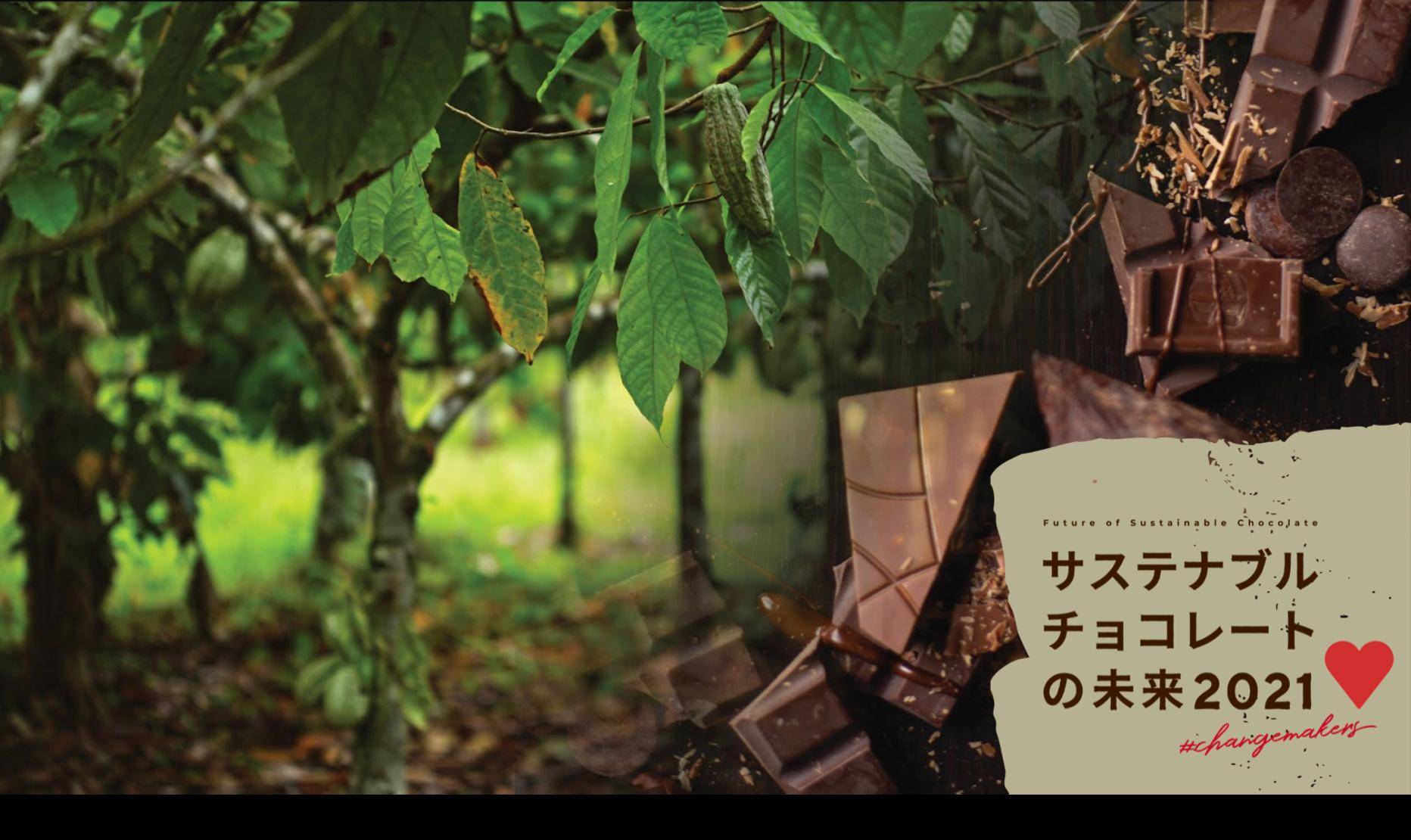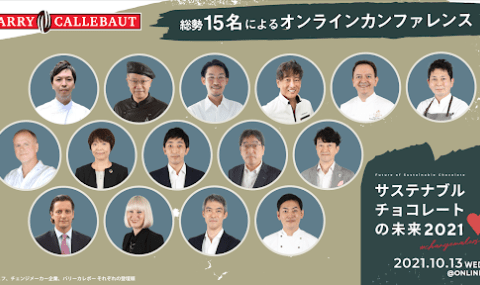Chocolate players in Japan now scaling impact on sustainable innovation

Chocolate players in Japan now scaling impact on sustainable innovation
- One year since Japanese chocolate industry players banded together to announce their sustainability commitments, the industry is experiencing great momentum with many partners now forging ahead to scale impact and innovation
- Sustainable innovation products are hitting the ground running; consumers in Japan can now get their hands on upcycled chocolate products with Cacao Barry® WholeFruit Chocolate Evocao™, made from 100% pure cacaofruit, a fruit of which 70% is normally discarded as waste
A year after The Barry Callebaut Group, the world’s leading manufacturer of high-quality chocolate and cocoa products, announced its collaboration with Japanese chocolate industry players to make sustainability chocolate a norm in the market, industry partners once again huddled together and are now taking their commitments to the next level.
From cocoa farms to new upcycled products to innovative technology, chocolate manufacturers, artisans, wholesalers and retailers in Japan such as Morinaga & Co., Ltd., Yuraku Confectionery Co., Ltd., FamilyMart Co., Ltd., Nichifutsu Shoji Co., Ltd., Godiva Japan, Inc., Tony's Chocolonely Nederland B.V, came together at the second virtual press event hosted by Barry Callebaut to look into what more can be done to create a more sustainable future in the chocolate and cocoa industry.
Since the global launch of Forever Chocolate, Barry Callebaut’s plan to make sustainable chocolate the norm by 2025, the company has pushed for change to the cocoa and chocolate value chain worldwide and in Japan over the past few years. They have also led the introduction of Cocoa Horizons, one of the key sustainability programs of Barry Callebaut which provides an effective avenue for customers to scale impact in cocoa growing communities.
Sustainability is an integral part of our business model, and we are committed for the long haul. As of the 2020 financial year, 37% of our products sold contain 100% sustainable cocoa and 61% of our non-cocoa ingredients are from sustainable sources. Yet we are not satisfied, we are investing more in digital technology including activities using mobile phone applications to help improve yield, as well as in agroforestry and the regeneration of natural ecosystems.
One year on: Riding the Momentum and Scaling Impact
A survey conducted by Barry Callebaut shows that 37% of consumers are more likely to buy sustainable chocolate confectionery products after COVID-19, a key trend not only applicable in Japan but worldwide. With more people balancing their purchase decisions with global topics of sustainability, chocolate manufacturers in Japan are riding the momentum and doubling down on their efforts to increase sustainable chocolate product offerings to consumers.
We have made great progress so far and I am very excited to see many of our customers adopting sustainability as a key business driver. And this is just the beginning. At Barry Callebaut, we always strive to be at the forefront of our customers’ needs by leading on trends, inventing the future and creating new chocolate experiences in a sustainable way. Our sustainable low carb, no added sugar chocolate solutions and our breakthrough innovation, Cacao Barry® WholeFruit chocolate and Cabosse Naturals ingredients, are great ways to meet consumers’ increasing need for indulgent choices that are good for them and good for the planet.
We have witnessed a growing demand for sustainable chocolate and a growing interest in people’s health and well-being. That is why we decided to expand our range of low-carbohydrate sustainable products, which began with a few products last September, to include six sustainable low-carb products in October this year.
We aim to achieve this in stages, to start using sustainable cocoa ingredients in a wide range of products by 2022, to increase the percentage of sustainable Black Thunder products, and to make 100% of our cocoa ingredients sustainable by 2025. If we can create an environment in which consumers can express themselves in a positive way about their sustainable consumption, the choice of sustainable chocolate will be increased dramatically.
We are running campaigns on newspapers, websites and in shops to inform consumers about our aim to create chocolates that make the people who eat it, and produce it, and the planet happy. By March 2022, 50% of our chocolate will be made from sustainably-sourced cocoa. We want to appeal to Generation Z, who are very interested in sustainability, and make them feel that it is cool to buy and eat sustainable chocolate.
Consumers can now get their hands on upcycled chocolate products in Japan
Consumers who report positive attitudes toward sustainable chocolate products often face difficulties to follow through with their wallets due to lack of access or awareness of the sustainable product offerings around them. The latest consumer insights survey conducted by Barry Callebaut revealed that more than one in two people in Japan consider sustainability an important factor when choosing a chocolate product, but nine in ten find it difficult to find sustainable products.
Since September this year, Japanese artisans have been able to get their hands on Cacao Barry® WholeFruit Chocolate Evocao™, made from 100% pure cacaofruit, a fruit 70% of which was previously discarded as waste.
WholeFruit chocolate presents a new and unique way of using both cacao pulp and chocolates. This is why I have a strong interest in both taste and technology. I believe that the development of products using WholeFruit chocolate will help to ensure that cocoa farming and producers will last forever.
Beyond chocolate, Chef Hiroyuki Emori from MAISON GIVRÉE also introduced new ice creams and drinks made with cacaofruit pulp and cacaofruit juice, which was recently launched in Japan by Barry Callebaut as part of its Cabosse Naturals range.
The possibility of cacaofruit enriching the applications beyond chocolate is limitless.
While businesses are ready to scale impact in sustainability actions, consumers are now also empowered and equipped to make purchase decisions that play a part in the global sustainability agenda.
About Barry Callebaut Group:
With annual sales of about CHF 6.9 billion (EUR 6.4 billion / USD 7.1 billion) in fiscal year 2019/20, the Zurich- based Barry Callebaut Group is the world’s leading manufacturer of high-quality chocolate and cocoa products – from sourcing and processing cocoa beans to producing the finest chocolates, including chocolate fillings, decorations and compounds. The Group runs more than 60 production facilities worldwide and employs a diverse and dedicated global workforce of more than 12,000 people.
The Barry Callebaut Group serves the entire food industry, from industrial food manufacturers to artisanal and professional users of chocolate, such as chocolatiers, pastry chefs, bakers, hotels, restaurants or caterers. The global brands catering to the specific needs of these Gourmet customers are Callebaut® and Cacao Barry®, Carma® and the decorations specialist Mona Lisa®.
The Barry Callebaut Group is committed to make sustainable chocolate the norm by 2025 to help ensure future supplies of cocoa and improve farmer livelihoods. It supports the Cocoa Horizons Foundation in its goal to shape a sustainable cocoa and chocolate future.
